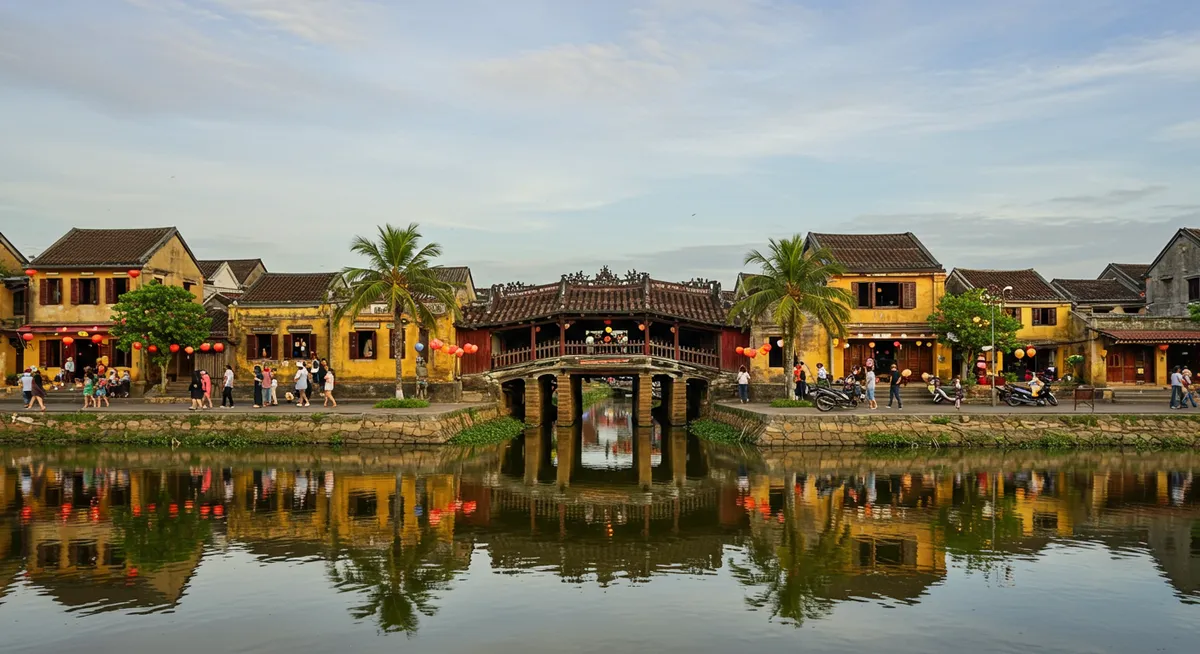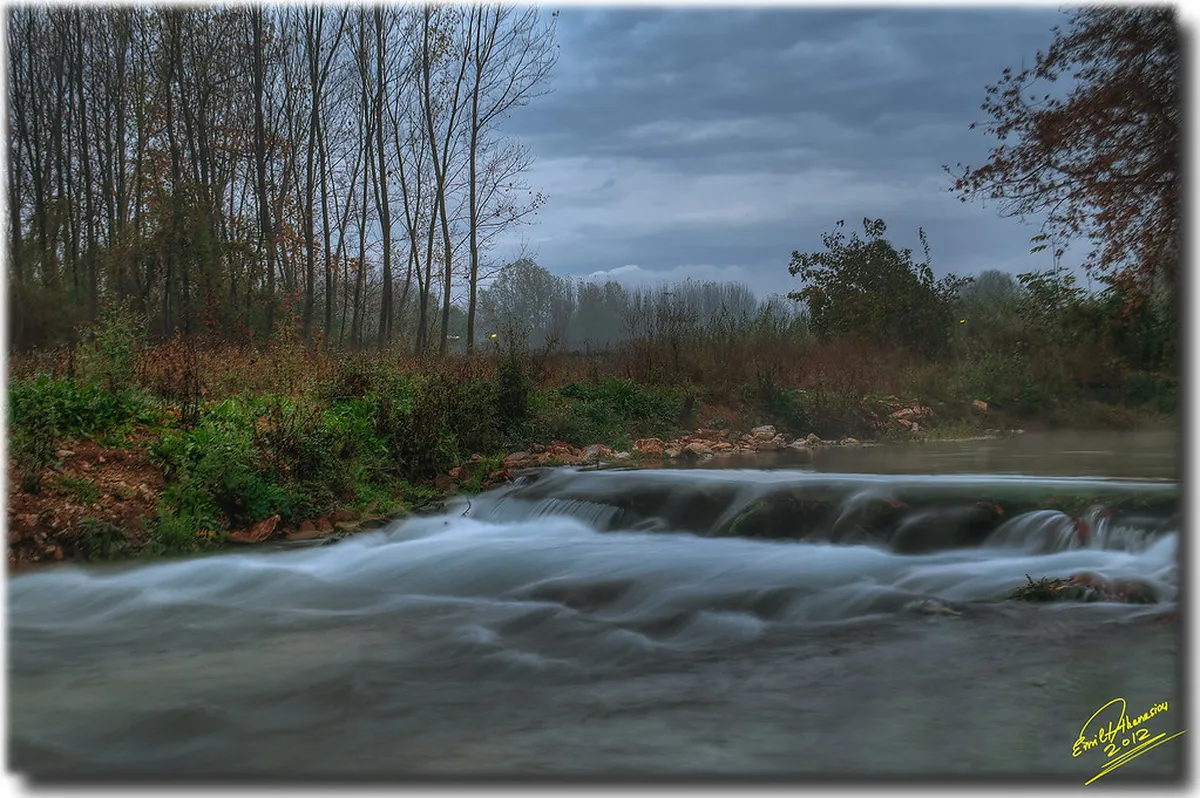Unlock Hoi An's Magic: Finding Your Perfect Travel Season
Having explored Hoi An across various seasons myself, I've come to appreciate the nuances that each period brings to this enchanting Vietnamese town. Choosing the best time to visit Hoi An significantly impacts your experience, from navigating the ancient streets to enjoying beach days or lantern-lit evenings. This guide will help you pinpoint the ideal travel window, considering climate, local festivals, and crowd levels, ensuring your trip is as magical as Hoi An truly is. Discover the best local cuisine with our Hoi An food guide. Navigate the city efficiently with our Hoi An transport guide.
Hoi An's Climate Unpacked: Dry vs. Wet Seasons
Hoi An, nestled in Central Vietnam, experiences a distinct two-season climate, crucial for understanding the best time to visit Hoi An. The dry season typically runs from February to August, characterized by sunshine and less humidity, ideal for exploring the ancient town. Conversely, the wet season, from September to January, brings more rain, with potential for flooding, particularly in October and November. Many travelers find this period charming despite the downpours, offering a different, quieter atmosphere. Understanding these patterns is fundamental for planning activities, whether it's cycling through rice paddies or simply strolling by the Thu Bon River. Each season offers unique experiences, and knowing what to expect ensures you pack appropriately and manage your expectations for this beautiful destination. Travel affordably with our Hoi An budget guide. Join local celebrations with our Hoi An festival guide.
February to April: The Sweet Spot for Your Hoi An Trip
For many, February to April represents the absolute prime time to visit Hoi An. During these months, the weather is refreshingly pleasant, with mild temperatures and low humidity, making it perfect for leisurely strolls around the Ancient Town and enjoying outdoor activities. There's less chance of rain, and the heat hasn't yet reached its peak. It's an ideal period to cycle to the beach, explore the intricate architecture, or simply relax by the river. This comfortable climate allows for a full immersion into the local culture and landscapes. If you're planning your ultimate Hoi An itinerary, aiming for these months guarantees the most agreeable conditions for sightseeing and exploration. Experience the vibrant nightlife with our Hoi An nightlife guide.
May to August: Navigating Hoi An's Hot & Humid Peak
As May arrives, Hoi An transitions into its hotter and more humid period, peaking in July and August. Temperatures can soar, making daytime exploration quite intense, though the evenings offer a welcome respite. Despite the heat, this is still a popular time for tourists, especially those seeking beach holidays at nearby An Bang or Cua Dai. Early mornings and late afternoons are the best time to visit Hoi An's attractions without feeling overwhelmed by the sun. It's wise to plan indoor activities or perhaps consider Hoi An day trips from the city to cooler destinations. Always carry water and light clothing during these months to stay comfortable while soaking in the town's vibrant energy. Create your ideal travel schedule with our Hoi An itinerary.
September to January: Experiencing the Rainy Season's Unique Charm
⭐ Recommendation: Don't miss out on amazing Hoi An tours - book now!
The wet season, spanning September to January, brings a different character to Hoi An. While rain is more frequent, particularly in October and November, it doesn't necessarily dampen the spirit. Flooding can occur, which transforms the ancient town into a unique, almost ethereal water village experience. Fewer tourists during this period mean a quieter, more authentic encounter with local life. The cooler temperatures make it comfortable for exploring between showers, and the illuminated lanterns reflect beautifully on the wet streets. Many visitors find the tranquil atmosphere during the wet season offers a truly memorable and intimate way to experience the town, and there are still plenty of things to do in Hoi An Ancient Town regardless of the weather.
Seasonal Events & Tips for Your Perfect Visit
Beyond climate, Hoi An's vibrant event calendar can influence the best time to visit Hoi An. The Full Moon Lantern Festival, celebrated monthly, sees the Ancient Town glow with thousands of colorful lanterns, creating an unforgettable spectacle. Lunar New Year (Tet), usually in late January or February, is a significant cultural event, though many businesses close. Participating in a Hoi An cooking class experience is a fantastic year-round activity, offering an authentic taste of Vietnamese culture regardless of the weather outside. Consider arriving early in the morning for popular spots or venturing out in the late afternoon to avoid the midday crowds. Embrace the local rhythm, and you'll find joy in every season.
Frequently Asked Questions
🌟 Local Expert Tip: Get the most out of your Hoi An visit with guided tours!
What is the absolute best month to visit Hoi An?
Does Hoi An experience flooding during the rainy season?
Is it still enjoyable to visit Hoi An during the hot summer months?
Ultimately, the best time to visit Hoi An hinges on your personal preferences for weather, crowd levels, and cultural events. While the dry, mild months of February to April are often cited as ideal, each season offers a unique lens through which to experience this charming Vietnamese town. Whether you prefer sun-drenched days, the tranquil beauty of the rainy season, or vibrant festival atmospheres, Hoi An promises an unforgettable adventure. Plan thoughtfully and prepare to be enchanted by its timeless allure. Dive deeper into planning your journey to Hoi An and create memories that will last a lifetime.



